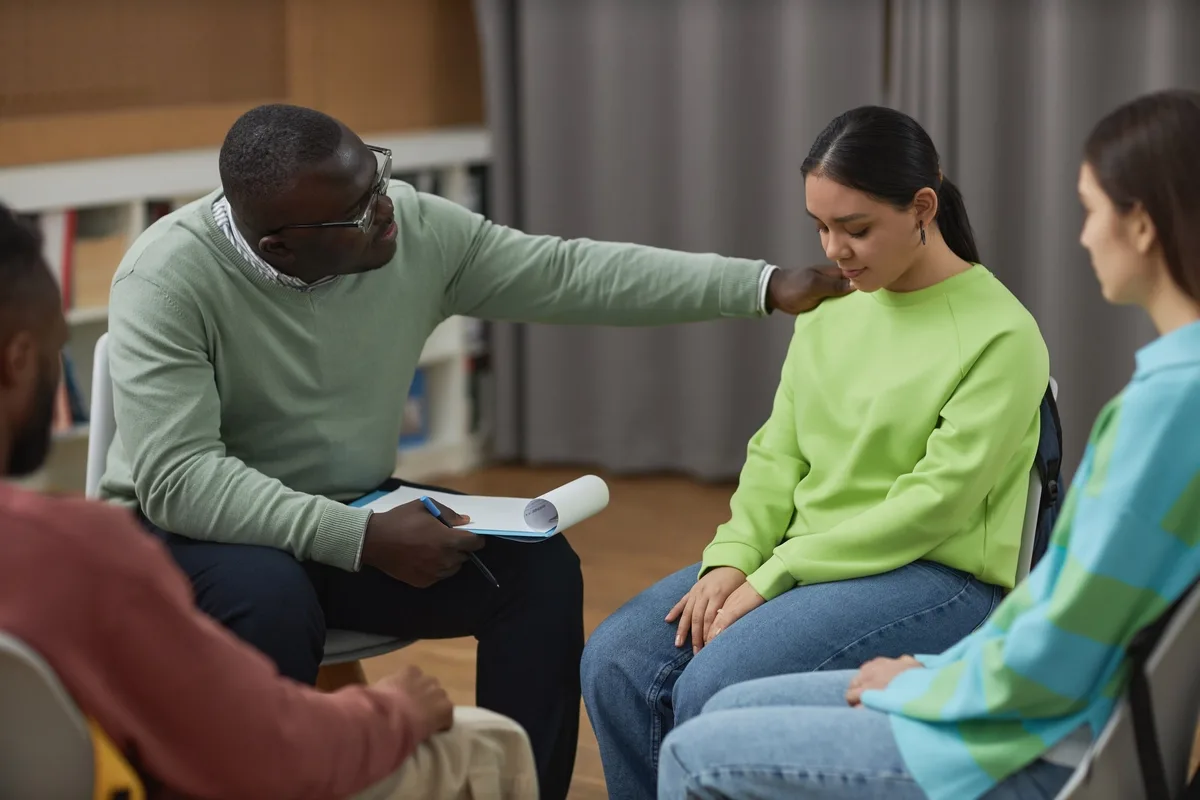24/7 Helpline:
(866) 899-221924/7 Helpline:
(866) 899-2219
Learn more about PTSD Treatment centers in Greenwood Springs
PTSD Treatment in Other Cities

Other Insurance Options

AllWell

MHNNet Behavioral Health

Anthem

Self-pay options

Magellan

Meritain

Oxford

WellCare Health Plans

Ambetter

PHCS Network

Providence

BHS | Behavioral Health Systems

Molina Healthcare

Private insurance

Premera

MVP Healthcare

Optima

Medical Mutual of Ohio

Group Health Incorporated

Humana






































